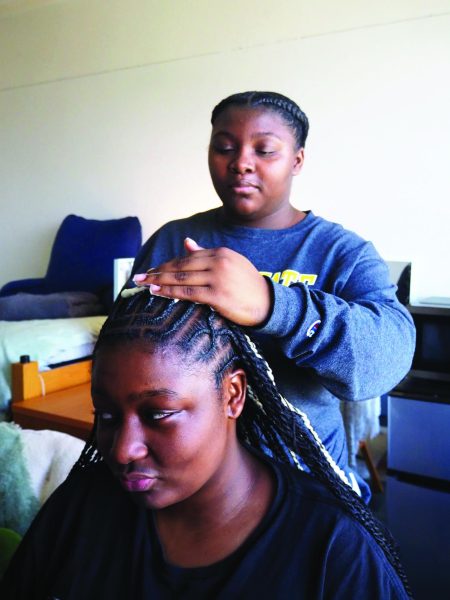Students approve senate’s proposed constitutional amendments
September 23, 2020
The student body at Wayne State College approved two constitutional revisions earlier this month that will reshape the structure of the institution’s Student Senate in the future.
Article IV Section VI and Article III Section I of the Professional Staff Senate Constitution have been revised after students overwhelmingly approved both revisions.
The first of the two amendments was made regarding Student Senate advising. Article IV Section VI was originally worded as follows:
“The Senate will be advised by two faculty or staff members. The advisors will have no vote. The terms of the appointed advisors will be two years each. Each will be appointed on alternate years by the newly elected Senate.”
Wayne State’s Student Senate proposed the following revision, which was approved after the student body’s vote concluded on Sept. 11.
“The Senate will be advised by the Director of Student Activities, the Vice President for Student Affairs, and one faculty member. The appointment of the faculty member shall be continuous and be terminated by that faculty member at the end of a term or with a 2/3 majority vote of the Student Senate at the end of a term, or via resignation.
“If an advisor change occurs after Nov 1st, the current president shall nominate a replacement. If an advisor change occurs after May 1, the newly elected president shall nominate a replacement. Should an emergency occur where an advisor needs to relieve themselves of their duties as an advisor to the Student Senate, the current president shall nominate a replacement to be voted on at the next Senate meeting. All nominations will be confirmed with a 2/3 vote of the Student Senate.”
This amendment proposal received 248 responses, with 232 students voting to approve the revision.
“We felt as though four advisors was too much, so instead of having two faculty advisors that had two-year terms, we instituted a change where we would only have one faculty advisor whose term was continuous until either that faculty advisor decided to step down or was voted out by the Student Senate,” Adam Smith, the Student Senate president said. “In a nutshell, we wanted to make sure that the Student Senate Constitution reflected the practices that the student senate had, and so this simply put our group and its practices within the bounds of the Constitution.”
The second of the two revisions voted on earlier this month was proposed due to the larger than usual freshman class. Article III Section I, was originally worded as follows:
“There shall be at least one senator for each academic school. There shall be at least one senator representing students who do not have a declared major. There shall be at least three senators who are freshmen. The number of senators per constituency shall be based on the population of that constituency.”
The temporary revision passed in similar fashion, garnering 224 of the 250 votes. Article III Section I reads as follows after the revision:
“There shall be at least one senator for each academic school. There shall be at least one senator representing students who do not have a declared major. There shall be at least four senators who are freshmen. The number of senators, per constituency, shall be based on the population of that constituency. This amendment is null and void after the conclusion of the 2020-2021 academic year and will revert back to the precious language thereafter.”
Smith said that the recent amendments are designed to give an equal voice to each education department’s student representation on campus, as well as assuring WSC’s freshman class that they have adequate Senate representation for what is the second largest freshman class in WSC history with 821 students.
“Because of the record freshman class, there was a case to be made to add a fourth seat to the already established three freshman representative seats on the Student Senate,” Smith said. “Since the number of incoming freshmen changes every year, this change is only applicable to the 2020-2021 academic year and the language reflects this.”
Since both initiatives received a majority of the votes needed to become ratified, they were instituted upon notification of ratification, according to Smith.










